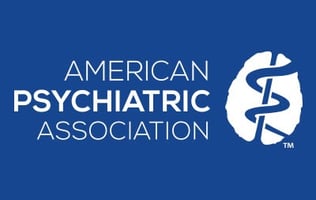DEA, HHS Extend Telemedicine Flexibilities Through 2024

The Drug Enforcement Administration (DEA) and the Department of Health and Human Services (HHS) today announced the extension of COVID-19 telemedicine flexibilities for prescription of controlled medications through December 31, 2024. These telemedicine flexibilities authorize qualified health professionals to prescribe schedule II-V controlled medications via audio-video telemedicine encounters, including III-V narcotic-controlled medications approved by the Food and Drug Administration for the treatment of opioid use disorder via audio-only telemedicine encounters.
Earlier this year, the DEA proposed regulations that would curtail telemedicine prescribing flexibilities extended to qualified health professionals during the COVID-19 Public Health Emergency, for instance by requiring an in-person visit for the prescribing of controlled substances. (The proposals appeared as two separate rules in the Federal Register: “Telemedicine Prescribing of Controlled Substances When the Practitioner and the Patient Have Not Had a Prior In-Person Medical Evaluation” and “Expansion of Induction of Buprenorphine Via Telemedicine Encounter.”) APA filed two letters in response to these proposed rules in March, urging that the DEA balance common-sense safeguards for DEA enforcement without decreasing access to lifesaving treatment.
The DEA received more than 38,000 comments on the proposed telemedicine rules and last month held two days of public listening sessions related to those rules. Psychiatrist Shabana Khan, M.D., chair of the APA Committee on Telepsychiatry, spoke on behalf of APA at the public meeting.
“Rather than a mandatory blanket requirement [for an in-person visit], the need for an in-person examination of a patient really should be left to the clinical discretion of a practitioner who has the knowledge, skills, and experience to make that decision,” Khan said during the meeting. “Reducing flexibility in modalities of care increases inequity, forcing practitioners to cherry-pick patients that have the ability to travel to in-person care.”
She also added that telemedicine has not been shown to increase diversion of controlled substances.
The DEA homepage announcing the extension of the COVID-19 telemedicine flexibilities states: “We continue to carefully consider the input received and are working to promulgate a final set of telemedicine regulations by the fall of 2024, giving patients and medical practitioners time to plan for, and adapt to, the new rules once issued.”
For related news, see the Psychiatric News articles “APA Urges DEA to Expand Telemedicine Prescribing” and “APA Responds to DEA’s Proposed Rules Regarding Telehealth, Buprenorphine.”
Don't miss out! To learn about newly posted articles in Psychiatric News, please sign up here.






